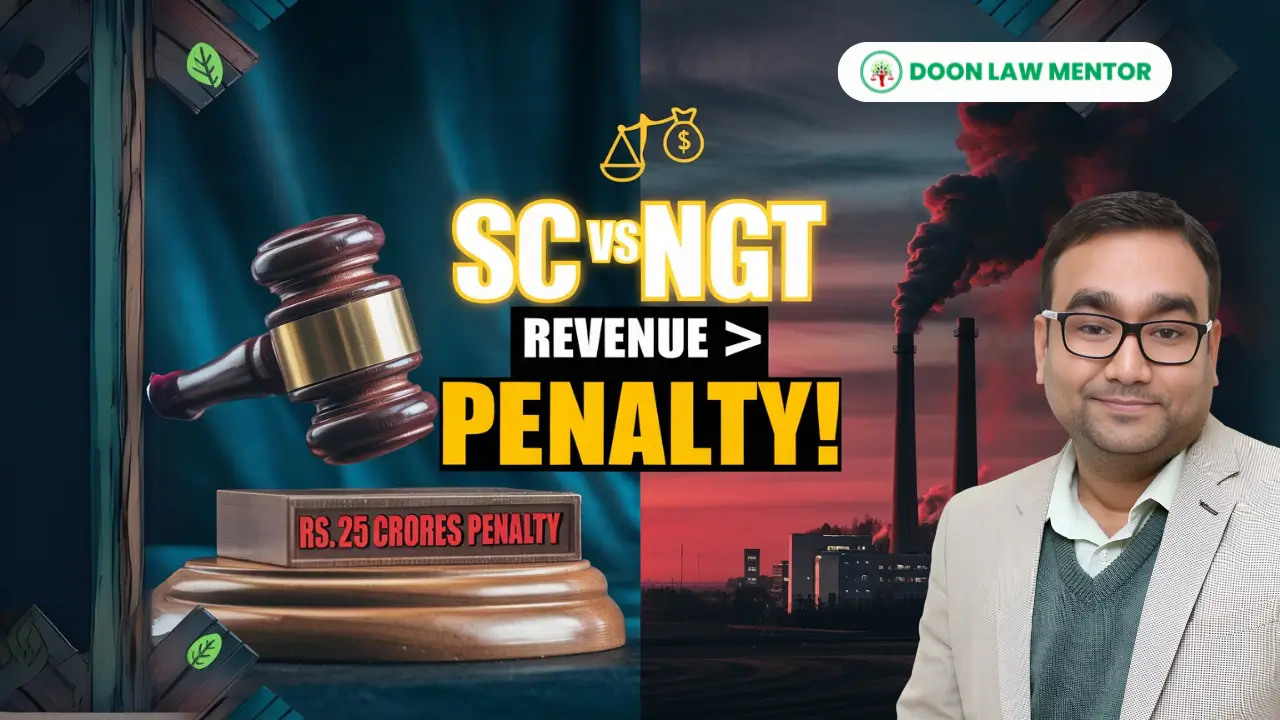Introduction
Family Law is an indispensable part of the Judiciary Exam syllabus, covering personal laws related to marriage, divorce, inheritance, and adoption. This area of law is one of the most frequently tested sections, especially in states like Madhya Pradesh, Uttar Pradesh, and Bihar. Understanding Family Law provisions is critical not only for Judiciary Prelims but also for the Mains, where questions on interpretation and application of laws are common.
This blog will serve as a comprehensive guide for judiciary aspirants, providing key insights into essential Family Law provisions and landmark judgments. We will focus on core laws like the Hindu Marriage Act, 1955, the Hindu Succession Act, 1956, and relevant provisions of Muslim and Christian law, alongside discussing frequently tested case laws.
Table of Contents
1. Hindu Marriage Act, 1955: Foundation of Hindu Family Law
The Hindu Marriage Act, 1955, governs legal aspects of marriage and divorce among Hindus in India. It remains one of the primary statutes judiciary aspirants must master due to its comprehensive coverage of matrimonial disputes.
Key Provisions to Focus On
- Section 5: Conditions for a Valid Marriage
This section outlines the legal conditions required for a marriage to be valid under Hindu Law, such as the prohibition of polygamy, the legal age for marriage, and the capacity of parties to give consent. Understanding these requirements is critical for tackling both objective and descriptive questions. - Section 9: Restitution of Conjugal Rights
One of the more frequently discussed provisions, Section 9 allows a spouse to apply for restitution of conjugal rights if the other spouse withdraws from cohabitation without any reasonable cause. Judiciary Mains often sees questions on this provision, particularly regarding its constitutional validity. - Section 13: Grounds for Divorce
Section 13 provides for grounds of divorce, including adultery, cruelty, desertion, and conversion. This section also introduces mutual consent divorce under Section 13B, which is widely practiced and frequently tested from Family law in the Judiciary Mains.
Tip: Pay particular attention to questions involving restitution of conjugal rights and judicial separation, as they often appear in both Prelims and Mains.
Landmark Judgments on Family Law
- Saroj Rani v. Sudarshan Kumar Chadha (1984)
The Supreme Court upheld the constitutionality of Section 9, ruling that the decree of restitution of conjugal rights does not infringe upon fundamental rights guaranteed under Article 21 of the Constitution. This judgment is critical for understanding how constitutional principles interplay with personal law. - Shayara Bano v. Union of India (2017)
Though related to Muslim law, this landmark judgment, which declared instant triple talaq unconstitutional, has wider implications for matrimonial law across all religions. The court emphasized gender justice, which is central to matrimonial disputes under any personal law.
By mastering such key judgments, judiciary aspirants can effectively write answers that incorporate legal reasoning backed by Supreme Court interpretations.
2. Hindu Succession Act, 1956: Understanding Inheritance Rights
The Hindu Succession Act, 1956, regulates intestate succession among Hindus and governs how property is distributed among heirs. One of the most crucial amendments in Family Law, particularly relevant for judiciary aspirants, is the 2005 Amendment that granted daughters equal coparcenary rights.
Key Provisions to Study
- Section 6: Equal Rights for Daughters
The 2005 Amendment to the Hindu Succession Act granted daughters the same rights as sons in coparcenary property, ensuring gender equality in inheritance rights. This provision has led to numerous questions on women’s property rights and remains a hot topic in Judiciary Exams. - Section 8: General Rules of Succession
This section specifies the hierarchy of heirs for male Hindus, starting with Class I heirs (including sons, daughters, mother, and widow), and how the property is to be divided among them. Judiciary aspirants must thoroughly understand how property is distributed under these rules.
Tip: Focus on differentiating between Class I and Class II heirs and the intricacies of coparcenary property under both the Mitakshara and Dayabhaga systems.
Landmark Judgments
- Vineeta Sharma v. Rakesh Sharma (2020)
The Supreme Court’s ruling in this case reinforced the equal property rights of daughters, stating that their rights in coparcenary property are unaffected by whether the father was alive at the time of the 2005 amendment. This judgment resolved ambiguities surrounding the rights of daughters and is indispensable for answering property-related questions in the Judiciary Mains. - Prakash v. Phulavati (2015)
Initially, the court had ruled that the 2005 Amendment does not apply retrospectively. However, Vineeta Sharma’s case overruled this judgment, making it crucial for candidates to know both rulings and how the legal position evolved.
You can explore more about the Hindu Succession Act on PRS India.
3. Muslim Law: Divorce and Maintenance Provisions
Muslim personal law, governed largely by Shariat principles, remains distinct in its treatment of family matters like marriage, divorce, and maintenance. Important statutes such as the Muslim Women (Protection of Rights on Divorce) Act, 1986 often come under the spotlight in Judiciary Exams.
Key Provisions in Muslim Personal Law
- Talaq (Divorce):
Forms of talaq under Muslim law include talaq-e-sunnat (revocable) and talaq-e-biddat (instant triple talaq), the latter of which was deemed unconstitutional in the Shayara Bano case. - Section 125 of CrPC:
This provision of the Criminal Procedure Code applies across religions and entitles Muslim women to maintenance, ensuring no religious law can undermine basic maintenance rights.
Tip: Focus on the constitutional aspects of Muslim personal law, particularly in light of progressive judgments like Shah Bano and Daniel Latifi.
Landmark Judgments
- Shah Bano v. Union of India (1985)
This case set a precedent for maintenance rights of Muslim women under Section 125 of CrPC, challenging the notion that personal law can override constitutional principles of equality. The court ruled that a divorced Muslim woman is entitled to maintenance, even after the iddat period. - Daniel Latifi v. Union of India (2001)
The Supreme Court, while upholding the Muslim Women (Protection of Rights on Divorce) Act, ensured that divorced Muslim women were entitled to a reasonable and fair provision for their future needs, interpreted broadly in favor of Muslim women’s rights.
4. Christian and Parsi Family Law: Divorce and Adoption
While Hindu and Muslim personal laws form the bulk of questions in Judiciary Exams, aspirants must also be familiar with the Indian Divorce Act, 1869 (for Christians) and the Parsi Marriage and Divorce Act, 1936. Christian law often involves issues related to grounds for divorce and maintenance.
Key Provisions
- Indian Divorce Act, 1869
This Act provides for divorce and judicial separation for Christians in India. Familiarize yourself with Section 10, which outlines the grounds for divorce, including adultery and conversion, and Section 18, which deals with judicial separation. - Parsi Marriage and Divorce Act, 1936
While less frequently tested, judiciary aspirants should know basic provisions about marriage dissolution under this Act, particularly Section 32, which outlines the grounds for divorce.
5. Uniform Civil Code (UCC): A Topic for the Future for Family Law
The Uniform Civil Code (UCC) is an ongoing debate in India, with Article 44 of the Constitution advocating its implementation. Although the UCC is not currently in place, aspirants should remain updated on discussions around the UCC, especially its relevance to gender justice, secularism, and individual rights.
Tip: UCC may not directly be tested yet, but its inclusion in Mains questions or interviews is highly probable, especially in light of recent judgments like Joseph Shine v. Union of India (decriminalizing adultery).
Explore the ongoing debate about the UCC and its constitutional implications on SCC Online.
Conclusion
Mastering Family Law is essential for excelling in the Judiciary Exam, whether you’re preparing for Prelims or Mains. Key provisions under the Hindu Marriage Act, Hindu Succession Act, and Muslim Personal Law form the core of most family law questions. Additionally, aspirants should stay updated on landmark judgments such as Vineeta Sharma v. Rakesh Sharma and Shah Bano v. Union of India, which shape the legal landscape.
A well-rounded preparation strategy includes not just memorizing provisions but understanding their application through landmark cases and real-life legal scenarios. As you prepare for the exam, remember to consistently practice mock tests, revise crucial judgments, and keep up with legal updates.
FAQs
1. What are the key provisions of the Hindu Marriage Act, 1955?
Key provisions include Section 5 (conditions for a valid marriage), Section 9 (restitution of conjugal rights), and Section 13 (grounds for divorce).
2. What are the equal rights of daughters under the Hindu Succession Act?
The 2005 Amendment granted daughters equal rights in coparcenary property, allowing them the same inheritance rights as sons.
3. How is talaq governed under Muslim law?
Muslim law recognizes various forms of talaq, including talaq-e-sunnat (revocable) and talaq-e-biddat, which was declared unconstitutional in Shayara Bano v. Union of India.
4. What is the significance of the Shah Bano case?
In Shah Bano v. Union of India, the Supreme Court upheld a divorced Muslim woman’s right to maintenance under Section 125, CrPC, setting a precedent for gender justice.
5. What is the Uniform Civil Code (UCC)?
The UCC is a proposal to unify all personal laws into a common law applicable to all citizens, irrespective of religion. It is still under debate and is mentioned under Article 44 of the Constitution.
#JudiciaryExam #FamilyLaw #LandmarkJudgments #HinduMarriageAct #LegalProvisions #JudiciaryPreparation #DoonLawMentor






4 Comments
Your article helped me a lot, is there any more related content? Thanks!
Thanks for sharing. I read many of your blog posts, cool, your blog is very good.
Thanks for sharing. I read many of your blog posts, cool, your blog is very good.
Your point of view caught my eye and was very interesting. Thanks. I have a question for you. https://accounts.binance.com/en-IN/register?ref=UM6SMJM3